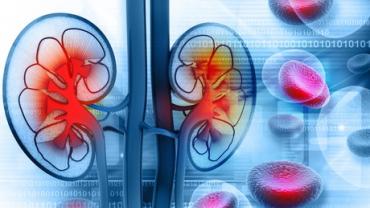
According to a new study published in the journal Molecular Cancer Therapeutics researchers demonstrate that docosahexaenoic acid (DHA) helps reduce renal cell carcinoma invasiveness growth rate and blood vessel growth when combined with the anti-cancer therapy regorafenib.
Regorafenib is one of a new generation of anti-cancer therapies that attack tyrosine kinases. Unfortunately kidney cancers mutate to resist these therapies. However DHA metabolites called epoxydocosapentaenoic acid (EDP) reduce the ability of cancers to invade and grow blood vessels. The study found that DHA and regorafenib have a syngergistic effect with one another.
Researchers tested DHA in combination with regorafenib against cancer cell lines and human tumors in mice. As a result kidney cancer cells were killed in both models. This combination reduced both tumor growth and angiogenesis. This is the process in which tumors recruit blood vessels to feed their expansion.
This study demonstrates the synergistic effect combining regorafenib and DHA specifically. Fish oil supplements has been shown to increase the efficacy of other medications just as I shared last week with antidepressants. Previous studies have shown that omega-3 fatty acid status determines the efficacy of B vitamins.
This does not mean that DHA will have the same impact against kidney cancer on its own although there are numerous other studies demonstrating that omega-3 fatty acids help inhibit the growth and spread of other cancers. For example a study published November 2014 in the Journal of Pharmacology and Experimental Therapeutics showed that omega-3s reduce the risk of prostate cancer and are effective in inhibiting the proliferation of cancer cells. Researchers working with prostate cell cultures found that the fatty acids bind to a receptor called free fatty acid receptor 4 (FFA4). Instead of stimulating cancer cells the receptor acts as a signal to inhibit growth factors that suppress the proliferation of the cancer cells.
In addition several studies have found that omega-3 consumption reduces either the risk of development of prostate cancer or the rate of mortality for those diagnosed with prostate cancer.
The research supports fish oil as a simple way patients with advanced kidney cancer could increase the effectiveness of their treatment. In general most people are deficient in essential fatty acids and would benefit taking a fish oil supplement for their overall health.
By Michael Jurgelewicz DC DACBN DCBCN